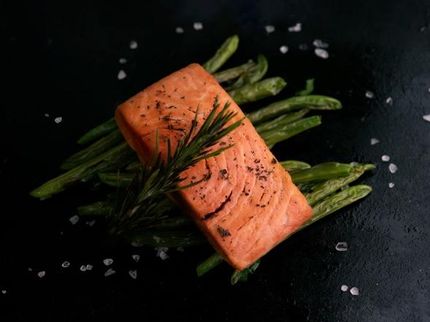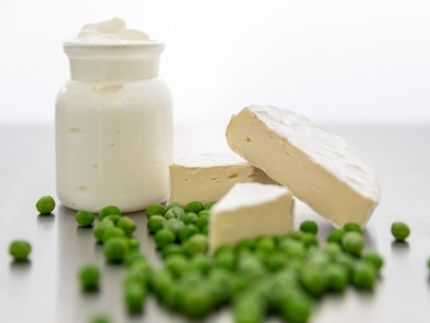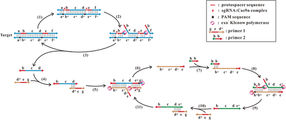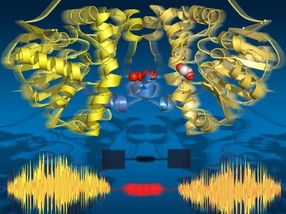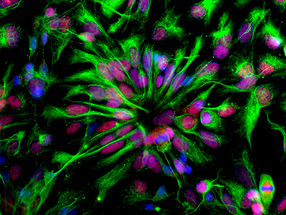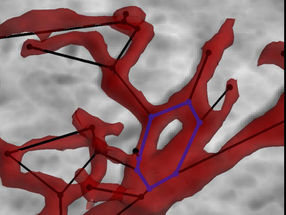Just as Gouda: Improving the quality of cheese alternatives
Studying how plant-based proteins interact with fat matrices can lead to better texture and nutrition for vegan cheese
Plant-based dairy products are a great alternative for people who avoid animal products, but manufacturers have a hard time replicating the creamy, cheesy qualities that make dairy so indulgent.

Researcher Alejandro Marangoni demonstrates the stretchy properties of his team’s plant-based cheese analog.
Alejandro Marangoni
Scientists from the University of Guelph in Ontario and Canadian Light Source Inc. in Saskatchewan are working to produce plant-based cheese with all the characteristics of real cheese, but with better health benefits.
In Physics of Fluids, by AIP Publishing, researchers studied multiple types of plant-based proteins and how they interact with alternative cheese scaffolds.
“If you wanted to strictly only eat plant-based products, you would end up eating a lot of beans and tofu, which can be little bit boring after a while,” said author Alejandro Marangoni. “Now, consumers expect essentially the same animal product but with plant-based ingredients, which is very difficult.”
To create a cheesy product with the same texture as the real thing, scientists need to study a variety of physical attributes such as the melting, stretching, and oil-release upon grilling and heating.
“The behavior of milk proteins and meat proteins is reasonably well understood, but knowledge about the functionality of plant proteins is lacking,” Marangoni said. “There is also a huge variety of different plant proteins, each one very different from one another.”
Previous research concluded that a blend of 25% coconut oil, 75% sunflower oil, and pea protein created a desirable cheese texture. In this research, Marangoni and his team studied isolates from three proteins (lentil protein, faba bean protein, and a particular type of pea protein) and observed how the isolates interacted with the oil and with the starch matrix of the cheese alternative.
They found that increasing the coconut oil increased the hardness of cheeses, but cheese with pea protein and 25% coconut oil had the firmest texture due to their unique protein-fat interactions. This formulation matched or surpassed the melt, oil loss, and stretch of the cheese analogs made with 100% coconut oil.
Using a blend of sunflower and coconut oil decreased the saturated fat content of the cheese, creating a healthy and sustainable alternative to dairy cheeses and other plant-based cheeses.
“Ultimately we want to improve the nutrition, increase the protein content, and lower the saturated fat content of cheese alternatives,” Marangoni said. “But keeping all the functionality in there, which includes the melt and the stretch of the ‘cheese,’ is very difficult.”
Original publication
Most read news
Other news from the department science

Get the food & beverage industry in your inbox
By submitting this form you agree that LUMITOS AG will send you the newsletter(s) selected above by email. Your data will not be passed on to third parties. Your data will be stored and processed in accordance with our data protection regulations. LUMITOS may contact you by email for the purpose of advertising or market and opinion surveys. You can revoke your consent at any time without giving reasons to LUMITOS AG, Ernst-Augustin-Str. 2, 12489 Berlin, Germany or by e-mail at revoke@lumitos.com with effect for the future. In addition, each email contains a link to unsubscribe from the corresponding newsletter.
